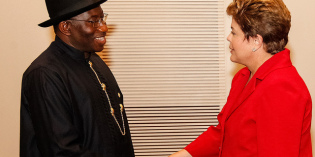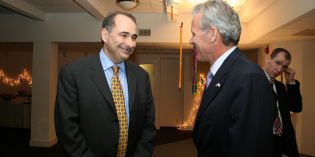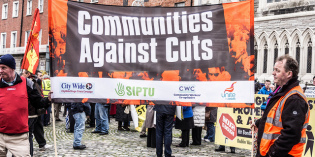Achieving accountable government

The only way to protect citizens from their governments is to divide sovereign authority between the national and international levels
The foremost responsibility taken on by a state is ensuring the safety of its citizens, but how can citizens be protected if the threat to their safety comes from their own government? Carmen Pavel argues that it is a mistake to believe states alone can effectively protect the rights of individuals. She writes that only […]

If the Intelligence and Security Committee is to be an effective scrutineer, it must be able to rely on the accuracy of the information provided by the security services
Recent events at the Intelligence and Security Committee (ISC), the Parliamentary body tasked with holding MI5, MI6, and GCHQ to account, have shown the difficulty of knowing fully the activities of these organisations. Andrew Defty explores the possibility that representatives from GCHQ may have recently given a misleading impression to the ISC. Similar PostsNot all scrutiny […]

Recent Nigerian experience illustrates the importance of ensuring that the institutional, financial, and operational powers of election management bodies are safeguarded
How should countries organise their systems of electoral administration? Recent election cycles in Nigeria illustrate the importance of ensuring that electoral management bodies are not just institutionally independent, but that steps are also taken to ensure that sufficient emphasis is placed on the institutional, financial, and operational powers and functions of these organisations, argues Ibrahim Sani. Similar PostsIt’s time to change […]

UK political elite networks are formed early in life and in specific fee-paying schools
What accounts for political elite formation in the UK? And what are the implications for democracy? Here, Brendan O’Rourke, John Hogan, and Paul F. Donnelly use a new ‘Institutional Influence Index’ to demonstrate the validity of the widely-held view that elite formation takes place early in life, and in specific fee-paying private schools such as […]

The Government’s failure to hold a referendum on the creation of a directly elected mayor for Greater Manchester may undermine the legitimacy of this important new office
George Osborne recently announced that Greater Manchester was to get a new ‘metro Mayor’ with enhanced powers, despite the decision of Manchester’s voters to reject a City Mayor in a recent referendum. Here, John Fenwick argues that there is political rationale for avoiding a plebiscite, and that the eventual office holder may be marred by a perceived lack of […]

An English Parliament terrifies the British political and academic elite far more than the thought of Scottish separatism did
The Scottish independence referendum opened up a number of debates around both the future constitutional status of Scotland, but also of England, with improved and empowered local government, reforming the House of Commons, and regional devolution all being mentioned as potential routes forward. Here, Colin Copus argues that all of these fall short of what […]

20 things we learned about democracy in October 2014
What happened in October 2014 that democrats will find interesting? Lots, it turns out, including revelations about the position of names on ballot papers, drones, and of course UKIP. Sean Kippin rounds up 20 interesting pieces of information that made themselves known this month. Similar Posts20 things we learned about democracy in January 2015How democratic […]

Events in Iceland show that a UK constitutional convention should involve politicians as minimally as possible
Following the financial crisis of 2008-2009, the small country of Iceland decided to start afresh, and abandon its existing political and democratic institutions in favour of new, crowd-sourced arrangements. Thorvaldur Gylfason recounts the tale of how this idea was conceived and eventually abandoned thanks to political meddling. The lesson for the UK, he argues, is to keep […]

Modern Prime Ministers and Leaders of the Opposition do not engage with Parliament as much as their predecessors
Whoever the individual office holder, the Prime Minister is always the countries pre-eminent leader, with an infrastructure and responsibilities to the whole country. But they are also a member of the House of Commons, equal in voting rights and in their responsibilities to their constituents. Michael Rush shows that modern Prime Ministers and Leaders of the Opposition […]

The cuts in local government funding have had a significant impact on London’s most deprived communities
How has the significant cuts to local authority funding affected front-line services? There had undoubtedly been enormous strain on services and front-line staff, with councils have argued that the limits to efficiency have been reached. Amanda Fitzgerald presents findings from a new report for the Trust for London into the most deprived communities in London. Similar […]


 Democratic Audit's core funding is provided by the Joseph Rowntree Charitable Trust. Additional funding is provided by the London School of Economics.
Democratic Audit's core funding is provided by the Joseph Rowntree Charitable Trust. Additional funding is provided by the London School of Economics.